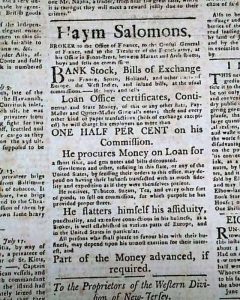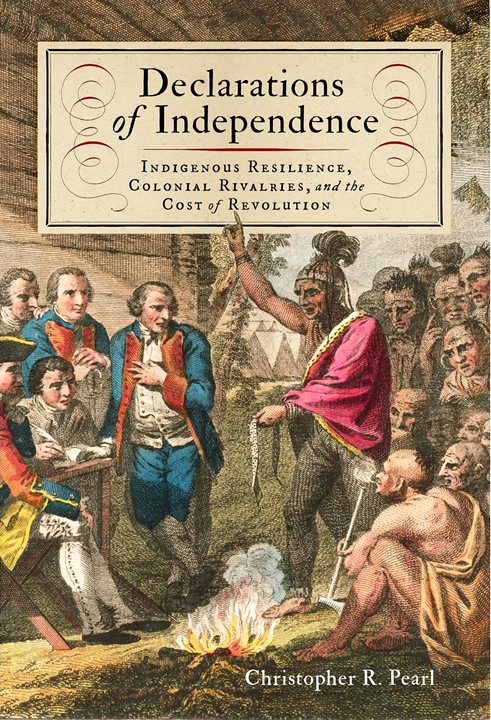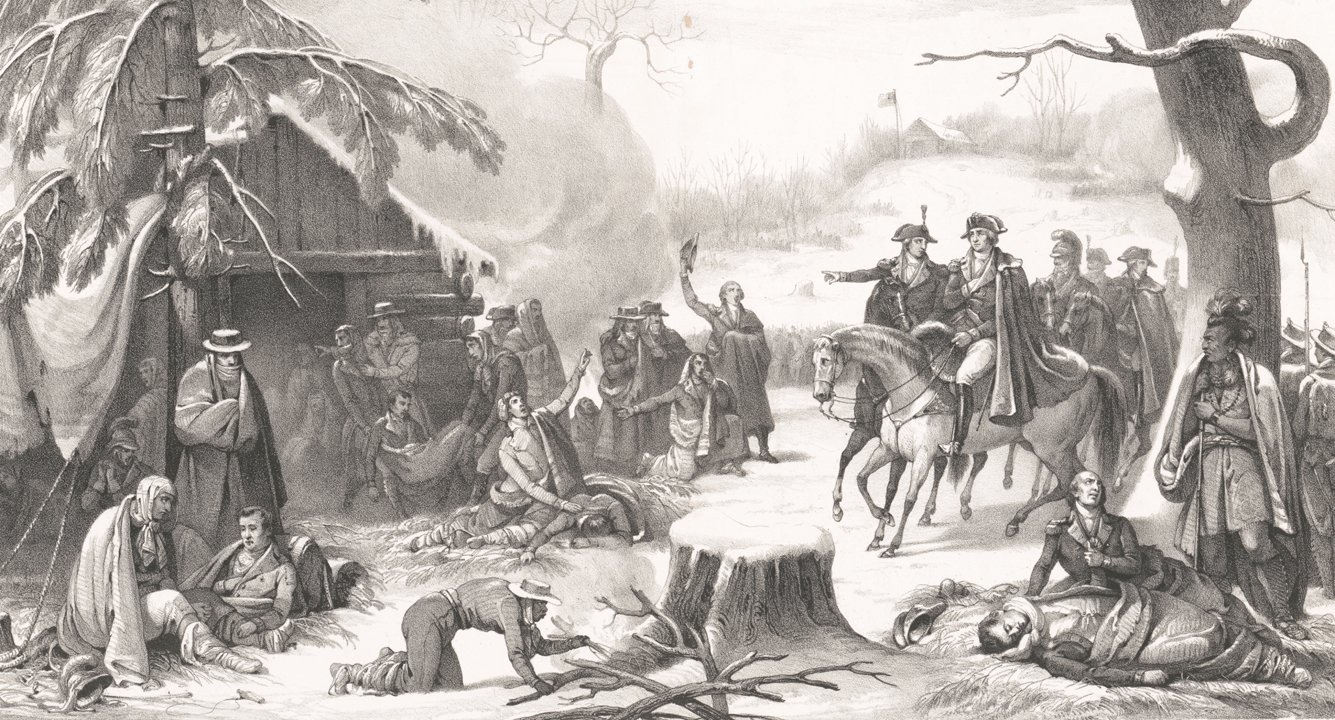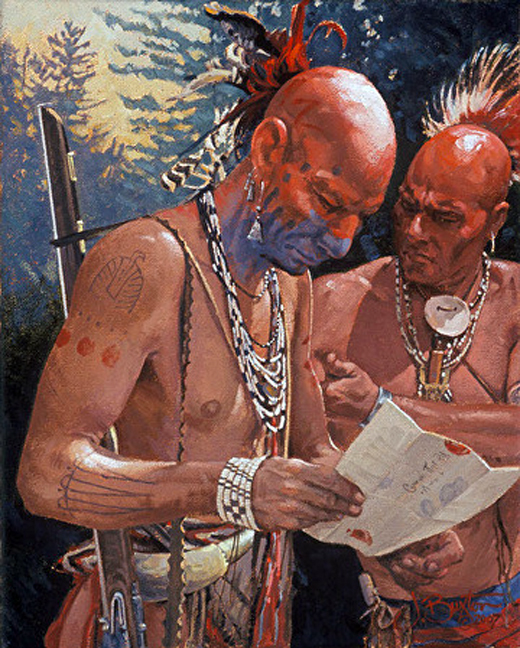 The American Revolution was fought not only by soldiers, seamen and politicians; it was also fought by civilians. Some of these civilians bore arms; others provided supplies; still others such as Haym Salomon fought with their wits and their administrative skills.[i]
The American Revolution was fought not only by soldiers, seamen and politicians; it was also fought by civilians. Some of these civilians bore arms; others provided supplies; still others such as Haym Salomon fought with their wits and their administrative skills.[i]
During the 19th century the true nature of Haym Salomon’s wartime activities was lost. His accomplishments were buried under layers of misinformation, embellishment and myths. False claims made by the son of the revolutionary patriot, Haym Moses Salomon (1785-1858), wildly distorted the factual role of his father. Through the zealous, and misguided, efforts of the younger Salomon his father came to be known as a “Financier of the American Revolution.” It was construed that Salomon the elder loaned, or gave, vast sums of his own personal assets to the revolutionary cause to such an extent that he was greatly responsible for the survival of the Revolution.
The erroneous information began appearing in the late 1820s. Salomon’s son contacted James Madison apparently seeking information regarding his father’s financial dealings with the Continental Congress 50 years earlier. Madison, relying upon his memory of events far in the distant past, was of little help.[ii]
Solomon’s son was undeterred. He campaigned in 1846 to press a claim in the U.S. Congress for repayment of a Revolutionary War debt he asserted was owed due to loans made by his father to the Continental Congress. At first he demanded $353,000. Later, the sum increased until it reached $3,000,000. His death in 1858 did not end the quest by the descendents for compensation. It is unknown, however, how much the later generations of the family, and their supporters, knew of the actual role Haym Salomon played in the Revolution.[iii]
In 1893, the U. S. House of Representatives received a report from the Committee on the Library recommending that a gold medal be struck “in recognition of services rendered by Haym Salomon for advances of money made during the Revolutionary war.” The report stated that “the Thirtieth, Thirty-first, Thirty-seventh, and Thirty-eighth Congresses” received reports from various committees “always in favor of paying what the United States undoubtedly justly owes, but it never passed both Houses. Consequently the heirs of Haym Salomon have finally abandoned the idea of ever expecting to receive the money that their ancestor so generously and kindly advanced, and in lieu thereof now ask that Congress should have a gold medal struck as an heirloom for the family.”
The report suggested that the medal would cost a mere $250 and that the medal “is the least that the Congress of the United States can do” as recompense to the heirs. The report stated that “there can be no question that the heirs should be reimbursed; but they seem to have caught the spirit of their ancestor and very generously waive their rights… .” However, Congress failed to pass the bill to strike the gold medal. The claims of the family and interested parties continued on.
It appeared that Congress was being stingy for not paying what was owed. Anti-Semitism raised its ugly head in the accusations. Some asserted that Congress was not paying its debt because Haym Salomon was Jewish. Others pointed fingers at Jews saying that while others fought and died the Jewish financial people prospered.[iv]

It was not until 1931 that the truth of Haym Salomon’s contributions to the Revolutionary War effort were discovered and made public. Jewish scholar Max J. Kohler published a pamphlet “Haym Salomon, the Patriot Broker of the Revolution, His Real Achievements and their Exaggeration.”[v] Here, for the first time the facts were laid out as to exactly what Haym Salomon did during the Revolutionary War. The most important revelation was that Salomon did not lend money to the government at any time. And, he never claimed to have done so. This bombshell came just weeks after President Hoover wrote to the National Conference of the Haym Salomon Monument Committee that “the noble and disinterested service of Salomon deserve the undying gratitude of all Americans. The aid of his financial genius was of critical importance in the revolutionary struggle, and it is indeed fitting that these services should be commemorated with an enduring monument.”[vi]
In 1950, historian Morris U. Schappes built on Kohler’s work and presented a paper at the Annual Meeting of the American Jewish Historical Society detailing all the references to Haym Salomon, and other Jews, in the diaries of Robert Morris the Superintendent of Finances, in charge of the Office of Finance between 1781 and 1784. The precise nature of Salomon’s relationship with the U.S. government is made clear in entry after entry. Schappes expanded that study for publication in 1977.[vii]
Schappes wrote that “Haym Salomon, although an energetic, patriotic bill broker selling bills of exchange issued by the Office of Finance, did not himself lend money to the government and never claimed he did.”[viii] Schappes continued, “In 1781 and 1782, Salomon sold about $200,000 worth of such bills of exchange, and was paid a broker’s fee for his valuable services.” Morris Schappes observed that “Haym Salomon therefore emerges as a patriotic merchant who after escaping from the British occupation and the threat of re-imprisonment in New York, went to Philadelphia and became a successful and resourceful broker, a public-spirited citizen, and a leader in the Philadelphia Jewish congregation.” He summed up his findings by writing that, “the … record will aid scholar and general reader achieve a true estimate of Salomon’s contributions, and should strip away the unhealthful myths that have been woven about his name.”[ix]
Historian Nathan M. Kaganoff analyzed Salomon’s massive use of newspaper advertising to promote his brokerage business. He noted that Robert Morris allowed Salomon to use the title “Authorized Broker to the Office of Finance” to help promote his status and business.[x] The following is a sample of his advertisements as it appeared in The Pennsylvania Journal, October 24, 1781:
HAYM SOLOMON [sic]
At his office in Front Street between Market and Arch Streets, buys and sells
BILLS OF EXCHANGE ON FRANCE
or any other part of Europe, on Commission:
Likewise all kinds of Merchandise, – He also discounts
INLAND BILLS or DRAFTS,
And has it often in his power to procure MONEY, on LOAN
for a short time.
Any gentlemen who may be pleased to favor him with their business,
may depend upon his utmost exertions for their interest. Part of the money
advanced if required.[xi]
While Salomon did make personal loans to various prominent men during the Revolution including James Madison, Edmond Randolph, Joseph Reed, Arthur St. Clair, and Thomas Mifflin. Sometimes he charged no interest.[xii] These were personal arrangements between gentlemen and not loans to the U.S. government. As Schappes wrote, “He was a broker who sold U.S. government securities for a commission. He was not a rich man, and there is no record that he ever lent money to our government.”[xiii]
Salomon died within two years after the end of the Revolutionary War. His obituary in January1785 did not mention any connection with his allegedly loaning money to the Continental Congress because those false claims came decades later. His obituary merely states the facts, “Thursday last, expired after a lingering illness, Mr. Haym Salomon, an eminent broker of this city; he was a native of Poland, and of the Hebrew nation. He was remarkable for his skill and integrity in his profession and for his generous and humane deportment. His remains were on Friday last deposited in the burial ground of the Synagogue, in this city.”[xiv]
It must be understood that Haym Salomon never made any statements about himself or his own services that would induce anyone to believe that he was loaning his personal assets to the Continental Congress. On August 25, 1778 Salomon sent a message, called at the time a “memorial,” to the Continental Congress. He briefly described his experiences in New York and his desire for work with the Continental Congress. It reads:
To the Honorable the Continental Congress
The Memorial of Haym Salomon late of the City of New York Merchant
humbly sheweth
That your Memorialist was some time before the Entry of the British Troops[September 1776] at the said City of New York, and soon after taken up as a spy by General [James] Robertson [Commandant of New York] committed to the Provost [prison]. That by the interposition of Lieut. General [Hessian commander, Leopold Philip de] Heister (who wanted him on account of his knowledge in the French, Polish, Russian, Italian etc. languages) he was given over to the Hessian Commander who appointed him in the Commissary Way as Purveyor chiefly for the Officers. That being at New York he has been of great Service to the French & American prisoners and has assisted them with money and helped them oft to make their escape – That this and his close Connexion with such of the Hessian Officers as were inclined to resign and with Monsieur Samuel Demeres has rendered him at least so obnoxious to the British Head Quarters that he was already pursued by the Guards and on Tuesday the 19th inst. he made his happy Escape from thence – This Monsieur Demeres is now most barbarously treated at the Provost’s and is seemingly in danger of his life and the Memorialist begs leave to cause him to be remembered to Congress for an Exchange.
Your Memorialist has upon this event most irrecoverably lost all his effects and credits to the amount of five or six thousand Pounds Sterling and left his distressed wife and a child of a month old at New York waiting that they may soon have an opportunity to come out from thence with empty hands.
In these circumstances he most humbly prayeth to grant him any Employ in the way of his business where he may be enabled to support himself and family. And your Memorialst as in duty bound to be etc.
Haym Salomon
Philadelphia August 25, 1778[xv]
Despite compelling evidence to the contrary the misinformed have continued to repeat the discredited myths of Salomon for the past 80 years. A quick search of the Internet will reveal many sites purporting to tell the story of Salomon, but the vast majority are simply repeating the claims dreamed up in the 19th century.
The inaccuracies of the Salomon story have been perpetuated in the 1939 Warner Brothers film, “Sons of Liberty” starring Claude Rains as Salomon.[xvi]
In 1941 a memorial statue of George Washington, Robert Morris and Haym Salomon was erected on Wacker Drive in Chicago. Also in 1941 a Liberty ship, the SS Haym Salomon, named after “the Polish immigrant Jew who helped to finance the American Revolutionary War,” was launched.[xvii] Howard Fast published a book, “Haym Salomon, Son of Liberty” in 1941 which unfortunately is not accurate history. Regrettably, books are still being published repeating the false history of Haym Salomon.
A 1975 US postage stamp was issued featuring an image of Salomon on the stamp along with the statement “Financial Hero.” On the glue side is printed: “Businessman and broker Haym Salomon was responsible for raising most of the money needed to finance the American Revolution and later to save the new nation from collapse.”
The true story of Haym Salomon, a patriotic broker serving the U.S. Office of Finance during the Revolution, does not need embellishment of any sort.
[i] Haym Salomon’s name has a variety of spellings the most common alternatives being “Hyam” and “Solomon.”
[ii] See letters: Solomon to Madison, January 9, 1827; Madison to Wheaton, January 20, 1827; Madison to Salomon, January 20, 1827; Solomon to Madison, October 18, 1827; Madison to Solomon, Feb 6, 1830; Madison to Salomon, February 25, 1830.
[iii] Schappes, Morris U., “Excerpts from Robert Morris’ ‘Diaries in the Office of Finance, 1781-1784,’ Referring to Haym Salomon and Other Jews,” American Jewish Historical Quarterly, September 1977, vol. 67, issue 1, p. 9-41, 140-161.
[v] Kohler, Max J., Haym Salomon, the Patriot Broker of the Revolution, His Real Achievements and their Exaggeration, New York, 1931.
[vi] “Haym Salomon Not Entitled to Monument: Bombshell Thrown at American Jewry by Prominent Jewish Worker,” Jewish Telegraphic Agency, March 17, 1931.
[x] Kaganoff, Nathan M., “The Business Career of Haym Salomon as Reflected in his Newspaper Advertisements,” American Jewish Historical Quarterly, 1976, vol. 66, p. 35 – 44.









4 Comments
Dear JAR,
The image of the 10¢ Haym Salomon stamp in Mr. Harrington’s story caught my eye, because I work on the professional side of stamp collecting, as the editor of the Scott postage stamp catalogs. I hope to contribute to this nifty new website at some point. Best wishes for success.
Cordially,
Charles Snee
Excellent and informative article! I am fascinated by this gentleman’s contributions to the unlikely success of the rebellion, and deeply appreciate the understanding of the true scope of his achievements.
As you say, they are substantial and important enough, without the self-serving embellishments of a later generation.
As a Jewish youngster in Sunday School in the early 1960s, I was told that Haym Salomon asked George Washington if Jews would be welcome in an independent America. Our founding fathers, having seen the millenia of death and destruction suffered in Europe and Britain under the guise of religion, were determined to prevent this from happening in their new country, and Washington assured Salomon that State and religion would be separate and there would be a safe haven for Jews. Salomon went to the Jewish communities abroad and raised revolutionary funding/loans from them, as well. We were told he died destitute because he volunteered his time and either did not charge, or minimally charged, for his services to the Revolutionary cause. We were never told (and rightfully so) that he advanced his own money. He made it possible for the Continental Army and militia to be fed, clothed, and armed when they met the enemy.
I hope that the Sunday School teachings today are more accurate than they were in the 1960’s. The inaccuracies made for a great story but it simply wasn’t true. Haym Salomon’s actual work as a broker does not need to be embellished to make for a “better” story.